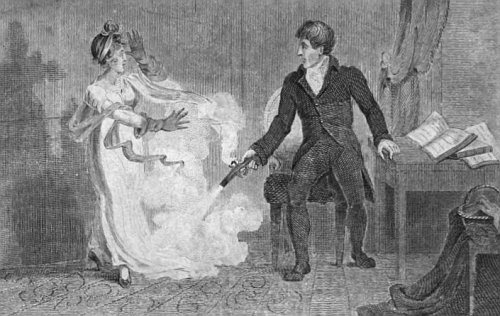
Fifty coins of various denominations are arranged in a row. You will take a coin from either of the row’s ends, then I will, and so on until all the coins are gone. What strategy will ensure that you take at least as much money as I?

Fifty coins of various denominations are arranged in a row. You will take a coin from either of the row’s ends, then I will, and so on until all the coins are gone. What strategy will ensure that you take at least as much money as I?
If a reincarnated person has no memory of her past life, then in what sense is she the same person?

We are never so virtuous as when we are ill. Has a sick man ever been tempted by greed or lust? He is neither a slave to his passions nor ambitious for office; he cares nothing for wealth and is content with the little he has, knowing that he must leave it. It is then that he remembers the gods and realizes that he is mortal: he feels neither envy, admiration, nor contempt for any man: not even slanderous talk can win his attention or give him food for thought, and his dreams are all of baths and cool springs. These are his sole concern, the object of all his prayers; meanwhile he resolves that if he is lucky enough to recover he will lead a sober and easy life in future, that is, a life of happy innocence.
So here for our guidance is the rule, put shortly, which the philosophers seek to express in endless words and volumes: in health we should continue to be the men we vowed to become when sickness prompted our words.
— Pliny the Younger, letter to Valerius Marcinius

It’s easy to draw a line and scatter an equal number of points on either side. Is it always possible to do this in reverse order? That is, given a finite set of points in the plane, is it always possible to draw a line that divides it neatly in two? (If there are an odd number of points, assume the line must intercept precisely one of them.)
In February 1864, Missouri slave Spotswood Rice enlisted as a private in the Union Army. In September, as the war neared its close, he prepared to return to Howard County with a force of 1600 soldiers. He sent this letter to slaveowner Kittey Diggs, who still held his two children:
I received a leteter from Cariline telling me that you say I tried to steal to plunder my child away from you now I want you to understand that mary is my Child and she is a God given rite of my own and you may hold on to hear as long as you can but I want you to remembor this one thing that the longor you keep my Child from me the longor you will have to burn in hell and the qwicer youll get their for we are now makeing up a bout one thoughsand blacke troops to Come up tharough and wont to come through Glasgow and when we come wo be to Copperhood rabbels and to the Slaveholding rebbels for we dont expect to leave them there root neor branch but we thinke how ever that we that have Children in the hands of you devels we will trie your vertues the day that we enter Glasgow I want you to understand kittey diggs that where ever you and I meets we are enmays to each orthere I offered once to pay you forty dollers for my own Child but I am glad now that you did not accept it Just hold on now as long as you can and the worse it will be for you you never in you life befor I came down hear did you give Children any thing not eny thing whatever not even a dollers worth of expencs now you call my children your property not so with me my Children is my own and I expect to get them and when I get ready to come after mary I will have bout a powrer and autherity to bring hear away and to exacute vengencens on them that holds my Child you will then know how to talke to me I will assure that and you will know how to talk rite too I want you now to just hold on to hear if you want to iff your conchosence tells thats the road go that road and what it will brig you to kittey diggs I have no fears about geting mary out of your hands this whole Government gives chear to me and you cannot help your self
He was reunited with his family several months later. It’s unknown whether this required a showdown with Diggs, but he was certainly ready for one. “I’ll let her know that god never intended for man to steal his own flesh and blood,” he had written to his children. “And as for her cristianantty I expect the Devil has Such in hell.” Mary, the daughter mentioned in the letter, was interviewed as part of the Federal Writers’ Project in 1937.
(Thanks, Stitch.)

This wooden model was created by the late Japanese puzzle inventor Nob Yoshigahara. It appears “impossible only from this one viewpoint,” notes Caltech neuroscientist Al Seckel, who presented it in his 2006 book Optical Illusions. “This time we won’t reveal the solution. We want you to think about it!”

James Thurber described the “Sesumarongi” as “a backward tribe but a tribe that is all around us.”

In 1769, inspired by Rousseau’s Émile, British author Thomas Day set out to train the perfect wife. He adopted foundlings of 11 and 12 years old, named them Sabrina and Lucretia, and took them to France, where he tried to rear them in isolation.
This went well at first — under Day’s direction, Sabrina wrote to one of his friends: “I love Mr. Day dearly and Lucretia. I am learning to write. … I hope I shall have more sense against I come to England. I know the cause of night and day, winter and summer. I love Mr. Day best in the world, Mr. Bicknell next, and you next.”
But it fell apart within 18 months. When the girls began to quarrel and tease him, he returned to England, placed Lucretia with a chamber milliner, and concentrated on Sabrina. But she screamed when he fired pistols at her petticoats (trying, at Rousseau’s suggestion, to accustom her to “détonations les plus terribles”), and she winced unheroically when he dropped sealing wax on her arms. Finally he released her to a boarding school, where in time she grew up to be “an elegant and amiable woman.”
In 1780, Day finally did find a wife who “often wept but never repined” at his “frequent experiments upon her temper and attachment.” But even that didn’t last — he died, ironically, while trying to break a horse.

evancalous
adj. pleasant to embrace
clipsome
adj. fit to be embraced